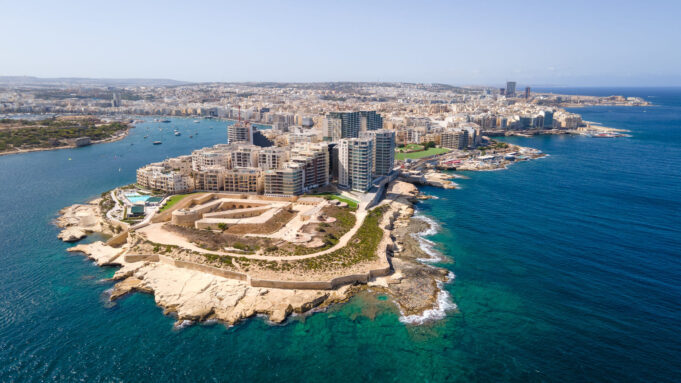Malta is a popular destination for entrepreneurs and investors looking to establish a business in Europe. With its stable political and economic environment, favorable tax regime, and access to the European market, Malta offers a range of benefits for those looking to start a new company. In this article, we’ll explore the process of opening a company in Malta, including the costs involved, the legal requirements, and the support available to entrepreneurs.
Determine the Type of Company You Want to Establish
Before you start the process of opening a company in Malta, it’s important to determine the type of company you want to establish. The most common types of companies in Malta include limited liability companies, partnerships, and sole proprietorships.
Limited liability companies (LLCs) are the most popular type of company in Malta, as they offer liability protection for the owners and are relatively easy to set up. Partnerships and sole proprietorships are less common, but may be suitable for smaller businesses or those operating in certain industries.
Calculate the Costs Involved

One of the key considerations when opening a company in Malta is the cost involved. The costs associated with opening a company in Malta can vary depending on the type of company you choose and the services you require. Here are some of the costs you can expect when opening a company in Malta:
- Company registration fees: Company registration fees in Malta vary depending on the type of company you establish, but typically range from €350 to €500.
- Legal fees: Legal fees for setting up a company in Malta can range from €1,500 to €3,000, depending on the complexity of the structure and the services required.
- Office space: If you require an office space in Malta, you can expect to pay rent of around €500 to €1,500 per month, depending on the location and size of the space.
- Accounting and tax services: Accounting and tax services are a critical component of any business in Malta, and you can expect to pay around €1,500 to €3,000 per year for these services, depending on the size and complexity of your business.
- Employee costs: If you plan to hire employees in Malta, you’ll need to factor in the cost of salaries, social security contributions, and other benefits.
Register Your Company with the Malta Registrar of Companies
Once you’ve calculated the costs involved and determined the type of company you want to establish, the next step is to register your company with the Malta Registrar of Companies.
To register your company, you’ll need to provide the following information:
- Company name: Choose a name for your company that is unique and not already in use by another company in Malta.
- Company structure: Determine the structure of your company, including the number of directors, shareholders, and other key personnel.
- Registered office: Provide the address of your company’s registered office in Malta, which must be a physical address within the country.
- Share capital: Specify the amount of share capital for your company, which must be at least €1,165 for an LLC.
- Memorandum and articles of association: Prepare a memorandum and articles of association for your company, which outline the purpose, governance, and ownership structure of the business.
Obtain the Required Licenses and Permits

Once your company is registered with the Malta Registrar of Companies, you’ll need to obtain the required licenses and permits to operate your business in Malta. All businesses are required to obtain a business license from Malta Enterprise, which is the national agency responsible for promoting and supporting business development in the country. In addition to the business license, certain industries may require industry-specific permits such as a food and beverage license or a tourism license. This will depend on the nature of the business being established.
Hire Employees and Open a Bank Account
Once you’ve obtained the required licenses and permits, you’re ready to start hiring employees and opening a bank account for your business in Malta. To hire employees, you’ll need to comply with Malta’s labor laws, including providing social security and health insurance coverage, and paying a minimum wage.
When opening a bank account for your business in Malta, it is necessary to provide the bank with important information. This information includes the company’s registration documents, such as the memorandum and articles of association, and the business license. Moreover, personal identification of the company’s directors and shareholders is required, as well as proof of address, such as a utility bill, for the company’s registered office. This information is necessary for the bank to verify the identity and location of the company.
Establish Accounting and Taxation Systems
Once your company is up and running, establish a robust accounting and taxation system to ensure that you comply with Malta’s financial regulations and minimize your tax liabilities. You’ll need to keep accurate records of all financial transactions, including income, expenses, and payroll, and file regular tax returns with the Malta Inland Revenue Department. Engage a professional accountant to assist with your financial reporting and tax compliance, as this can help to ensure that your business is operating efficiently and effectively.
Support for Entrepreneurs in Malta

Malta offers a range of support services for entrepreneurs, including business incubators, co-working spaces, and access to funding and investment opportunities. Malta has a thriving startup community, with a range of networking and mentorship opportunities available for entrepreneurs.
Conclusion
Opening a company in Malta is easier than you think. The process can offer a range of benefits for entrepreneurs, including access to the European market, a favorable tax regime, and a supportive business environment. By following the steps outlined in this guide, you can establish a successful business in Malta and take advantage of the opportunities available to entrepreneurs in this dynamic and growing market.















